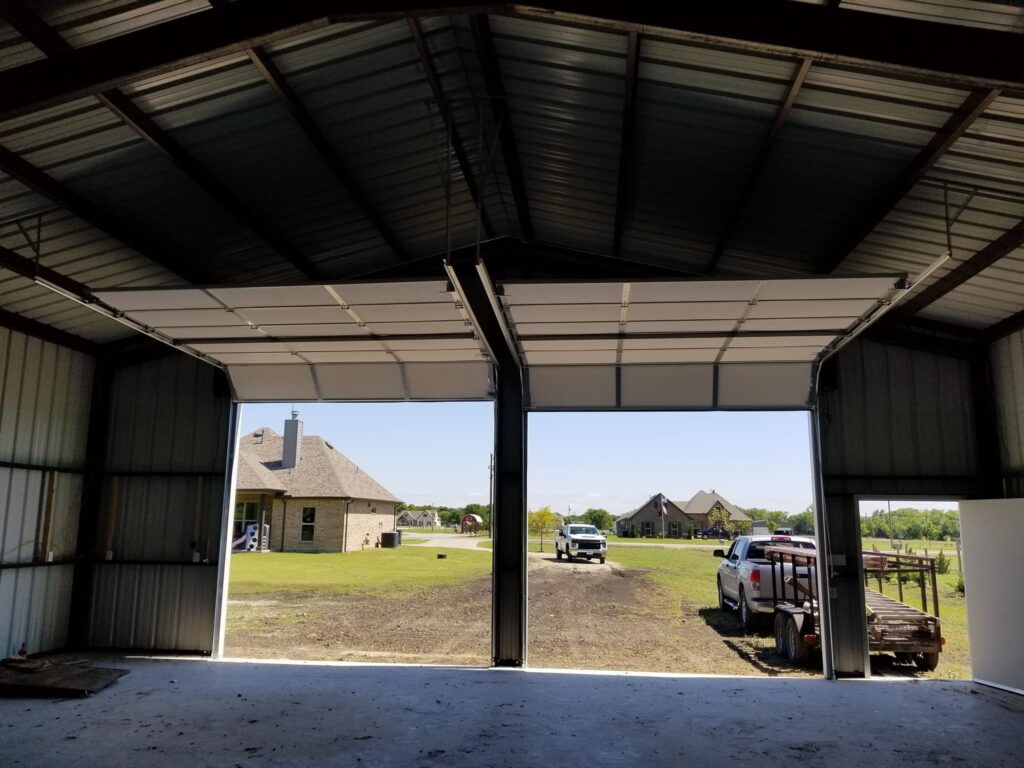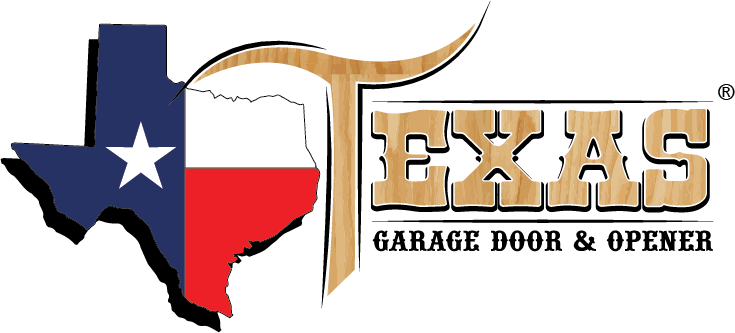How DFW Weather Affects Your Garage Door: What Homeowners Should Watch For After Severe Weather
At Texas Garage Door and Opener, we’ve served DFW homeowners for over 25 years, witnessing firsthand how our region’s dramatic weather shifts impact garage doors. From triple-digit summers to powerful storms and occasional freezes, your garage door—often the largest moving component of your home—faces unique challenges in North Texas.
Our certified technicians are committed to not just repairing weather-related damage, but helping you understand how to protect this crucial investment through all seasons. Let’s explore how DFW’s distinctive weather patterns affect your garage door and what preventative steps you can take.

Summer Heat Challenges for Garage Doors
When DFW temperatures soar past 100°F (which happened nearly 50 days last year), several key door components become vulnerable:
Photo Eye Sensor Interference: Bright Texas sunlight can hit sensors directly, creating “phantom obstructions” that prevent proper closing—particularly common with east or west-facing doors during certain times of day.
Expanded Metal Components: Extreme heat causes metal springs, tracks and hardware to expand, potentially affecting alignment and operation. If your door moves more slowly or makes unusual noises during summer, heat stress may be the culprit.
Accelerated Lubrication Breakdown: High temperatures cause lubricants to thin and evaporate faster, increasing friction between moving parts and accelerating wear—a significant concern during our extended North Texas summers.
Storm Damage: DFW’s Biggest Garage Door Threat
The Metroplex’s severe storm season (typically March through June) brings powerful weather that can seriously damage garage doors:
Wind Pressure Effects: Recent storms produced winds exceeding 70 mph across northern DFW communities, forcing doors out of tracks and causing panel buckling. Standard garage doors often fail during such events, with some homes in Plano and Frisco reporting complete door failures during the March 2025 storms.
Hail Impact Damage: Our region averages over a dozen significant hail events annually. The 2021 hailstorm that struck Grayson County and northern DFW caused extensive denting and structural damage to doors with conventional aluminum and thin steel panels.
Water Infiltration: Heavy downpours can overcome worn weatherstripping, allowing water to seep into the garage and potentially damage the door’s lower sections and opener components.
Winter Weather Considerations
Though less frequent than our other weather challenges, winter freezes create unique problems, as witnessed during February’s extreme cold snap:
Component Contraction: Cold temperatures cause metal parts to contract, affecting spring tension and overall door balance.
Lubrication Issues: Low temperatures thicken lubricants, creating additional resistance throughout the door system.
Seal Effectiveness: Rubber weatherstripping becomes less flexible in cold weather, reducing its effectiveness and potentially allowing moisture infiltration that can freeze and damage components.
Essential Maintenance for DFW Weather Conditions
Based on our extensive experience throughout the Metroplex, we recommend these preventative measures:
- Seasonal Inspections: Schedule professional check-ups before summer and winter to prepare your door for extreme temperatures.
- Climate-Appropriate Lubrication: Use silicone-based lubricants that withstand Texas temperature fluctuations better than conventional options.
- Weatherstripping Maintenance: Replace worn seals before storm season to prevent water infiltration.
- Post-Storm Assessment: After severe weather, check for misaligned tracks, damaged panels, and proper sensor function.
Is Your Garage Door Ready for DFW Weather?
Don’t wait until extreme weather strikes. Contact Texas Garage Door and Opener today for a comprehensive weather-readiness inspection. Our experienced technicians will identify potential vulnerabilities and recommend solutions tailored to your specific door system and local conditions.
